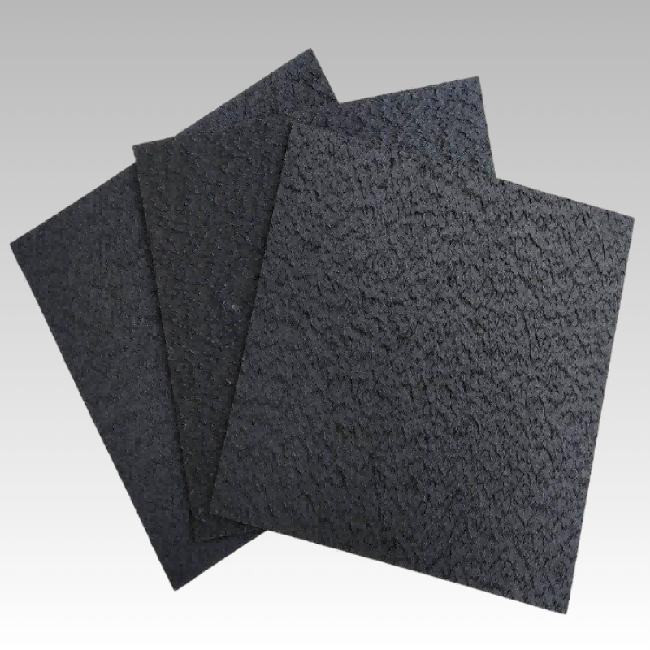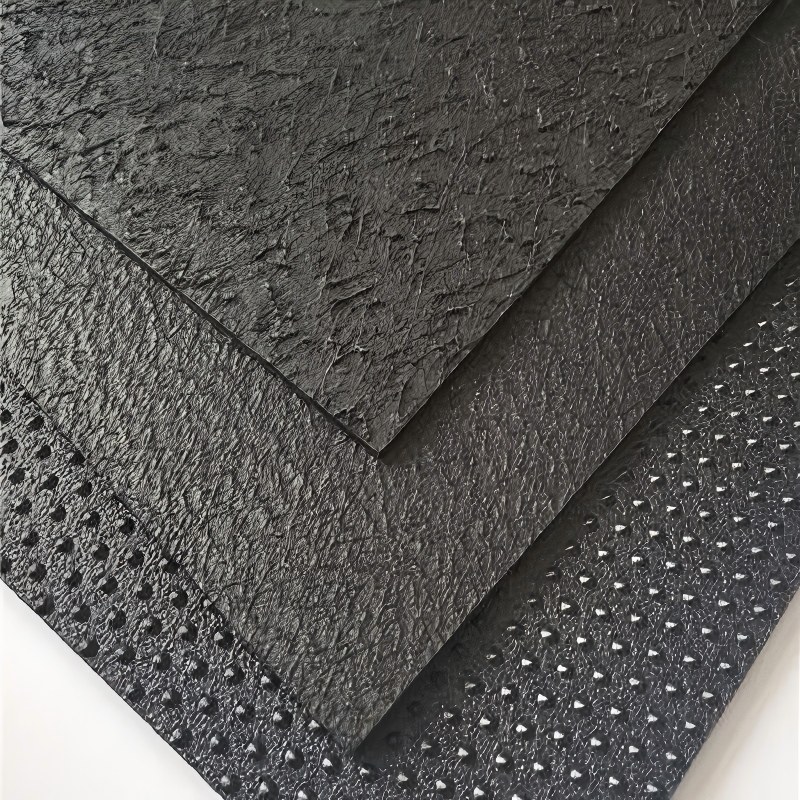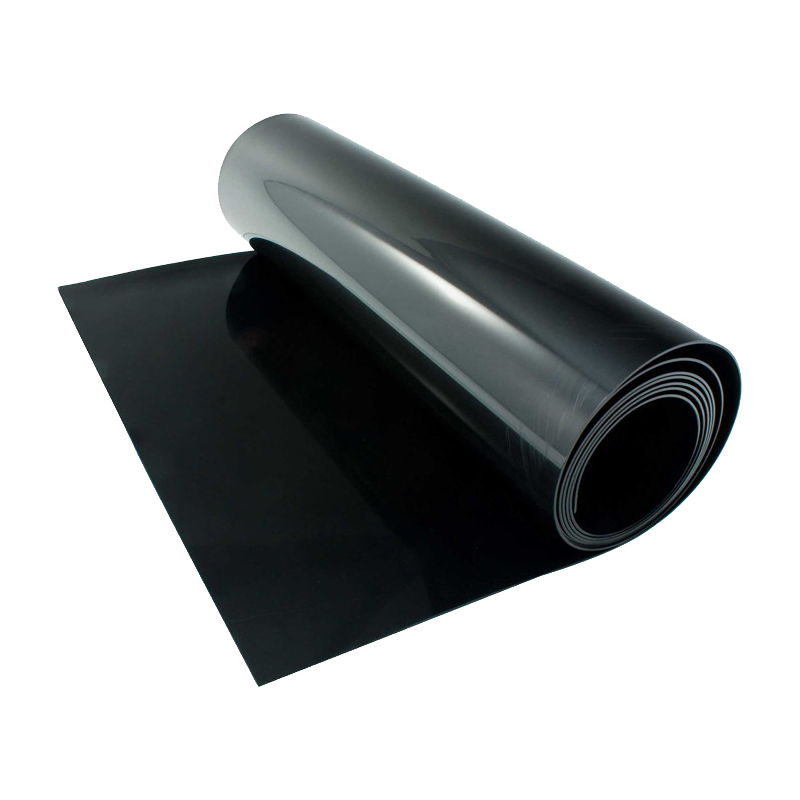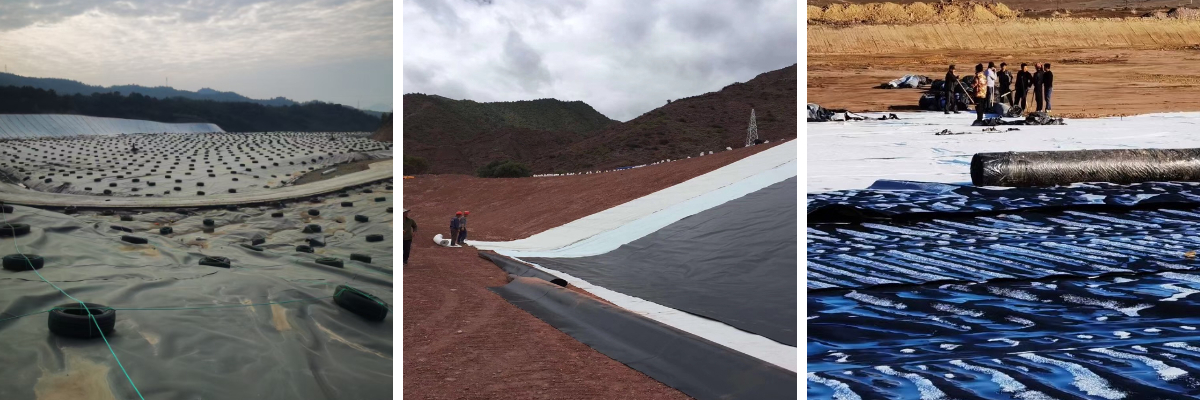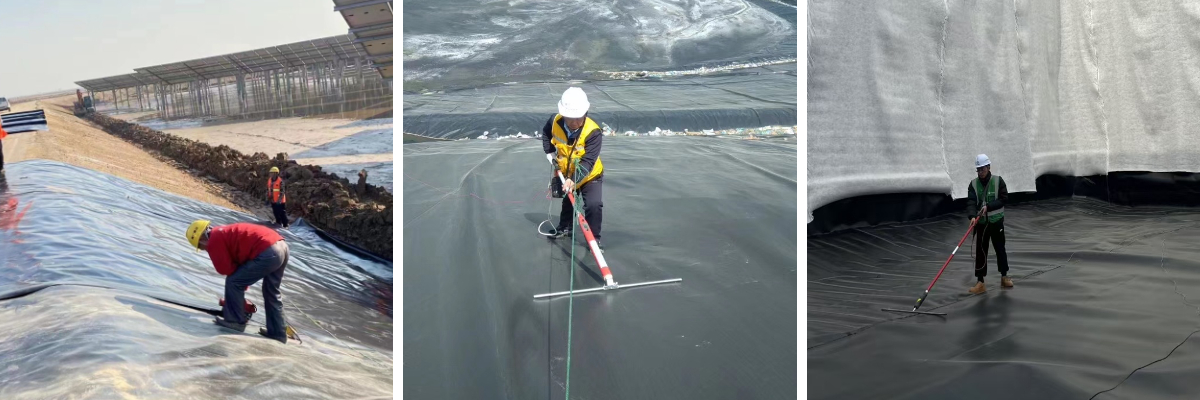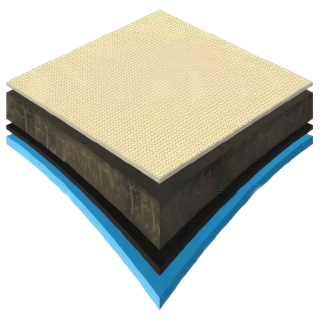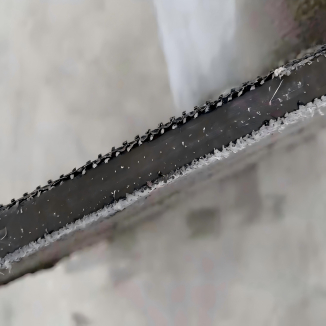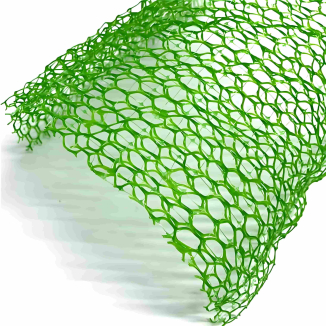Geomembrane And Geotextile
1.Good impermeability: Dense molecules, effectively blocking water and liquids.
2.Long durability: Resistant to ultraviolet rays and aging, can be used for a long time.
3.High strength: Resistant to rolling and stretching, not easy to break.
4.Quick construction: Lightweight and easy to cut, convenient to splice, suitable for various terrains.
5.Cost-saving: Low material and construction costs, and low maintenance expenses.
6.Wide application: Can be used for anti-seepage, isolation, reinforcement, and applicable to many fields.
Product Introduction
Geomembrane And Geotextile is a waterproof and barrier material made from high - molecular polymers, such as polyethylene (PE) and polypropylene (PP), as the basic raw materials. It is mainly divided into low - density polyethylene (LDPE) geomembrane, high - density polyethylene (HDPE) geomembrane, ethylene - vinyl acetate copolymer (EVA) geomembrane and other types. This material uses plastic film as the anti - seepage base material, and some of them are compounded with non - woven fabric to form geomembrane anti - seepage materials. Its anti - seepage performance mainly depends on the characteristics of the plastic film.
Geomembrane has many excellent properties. It has a small specific gravity but strong extensibility, can adapt to a high degree of deformation, and is not easy to be damaged when facing foundation settlement and other situations. At the same time, geomembrane is corrosion - resistant and has good tolerance to chemical substances such as acids, alkalis and salts; it has excellent low - temperature resistance, good anti - freezing effect and a wide range of applicable temperatures. In addition, it also has high tensile strength and tear strength, with good mechanical properties. In terms of durability, if new materials are used, it can be used exposed for 7 - 10 years, and up to 50 years when used in backfilling.
In terms of construction, geomembrane is light in weight, easy to transport and operate, and easy to cut and splice. It can form firm joints through hot - melt welding and other methods, with fast construction speed. It can also adapt to various complex terrains, effectively shortening the construction period. Moreover, compared with traditional anti - seepage materials, its comprehensive cost is lower, and the maintenance cost in long - term use is also low, showing obvious economic advantages.
Geomembrane is widely used in many fields. In water conservancy projects, it can be used for anti - seepage, isolation and protection of reservoirs, dams, channels, tunnels, etc.; in the field of environmental protection, it is commonly used in landfills, hazardous waste treatment sites, sewage treatment pools, etc. to prevent pollutant leakage; in transportation construction, it is suitable for foundation reinforcement of highways and railways, anti - seepage of culverts, and water storage and drainage projects of airports; in agriculture, it can be applied to the anti - seepage of irrigation systems, reservoirs, fish ponds, etc.; in construction projects, it plays a role in the anti - seepage lining of building basements, subway tunnels, etc.
Product Parameters
| Metric | ASTM | unit | Test value | Minimum test frequency | ||||||
| test method | 0.75 mm | 1.00 mm | 1.25 mm | 1.50 mm | 2.00 mm | 2.50mm | 3.00 mm | |||
| Minimum average thickness | D5199 | mm | 0.75 | 1 | 1.25 | 1.5 | 2 | 2.5 | 3 | Per volume |
| Minimum value (any one of 10) | -10% | -10% | -10% | -10% | -10% | -10% | -10% | |||
| minimum density | D 1505/D 792 | g/cm3 | 0.94 | 0.94 | 0.94 | 0.94 | 0.94 | 0.94 | 0.94 | 90,000 kg |
| Minimum average tensile performance (1) | D638 Type IV | |||||||||
| Breakage strength, | N/mm | 20 | 27 | 33 | 40 | 53 | 67 | 80 | 9,000 kg | |
| yield strength | N/mm | 11 | 15 | 18 | 22 | 29 | 37 | 44 | ||
| Strain extension, | % | 700 | 700 | 700 | 700 | 700 | 700 | 700 | ||
| yield extension | % | 12 | 12 | 12 | 12 | 12 | 12 | 12 | ||
| Minimum strength of right-angle tear | D 1004 | N | 93 | 125 | 156 | 187 | 249 | 311 | 374 | 20,000 kg |
| Minimum puncture strength | D4833 | N | 240 | 320 | 400 | 480 | 640 | 800 | 960 | 20,000 kg |
| Constant tensile load stress cracking (2) | D5397 | hour | 300 | 300 | 300 | 300 | 300 | 300 | 300 | Based on GRI GM-10 |
| Carbon black content | D 1603(3) | % | 2.0-3.0 | 2.0-3.0 | 2.0-3.0 | 2.0-3.0 | 2.0-3.0 | 2.0-3.0 | 2.0-3.0 | 9,000 kg |
| Carbon black dispersion | D5596 | Note (4) | Note (4) | Note (4) | Note (4) | Note (4) | Note (4) | Note (4) | 20,000 kg | |
| Oxygen induction time (OIT) (5) | 90,000 kg | |||||||||
| (a) Standard OIT | D3895 | minute | 100 | 100 | 100 | 100 | 100 | 100 | 100 | |
| (b) high-handed OIT | D5885 | minute | 400 | 400 | 400 | 400 | 400 | 400 | 400 | |
| 85℃ Oven aging (minimum average) (5)(6) | Per formula | |||||||||
| (A) Standard OIT is retained after 90 days | D 5721 | % | 55 | 55 | 55 | 55 | 55 | 55 | 55 | |
| (B) High voltage OIT is retained for 90 days | D 3895 D5885 | % | 80 | 80 | 80 | 80 | 80 | 80 | 80 | |
| Ultraviolet resistance (7) | Per formula | |||||||||
| (a) standard OIT | D3895 | Note (8) 50 | ||||||||
| (b) Retention of high pressure OIT after 1600 hours (9) | D5885 | % | ||||||||
Product Application
Geomembranes, with their excellent properties of anti-seepage, isolation, and reinforcement, have a wide and important range of applications in various fields, providing reliable guarantees for various engineering and production activities.
In hydraulic engineering, geomembranes are commonly used in facilities such as reservoirs, dams, channels, and tunnels. They mainly play a role in anti-seepage, effectively reducing water leakage, improving water storage capacity, enhancing the stability of these hydraulic facilities, and reducing safety risks.
In the field of environmental protection, geomembrane is a key material for preventing pollution from spreading. In places such as landfills, tailings dams, and sewage treatment plants, it can prevent the leakage of harmful substances and protect the soil and groundwater environment.
In terms of transportation construction, geomembranes can be used for roadbed reinforcement of highways and railways, anti-seepage of culverts, and related projects in airports, which helps to enhance roadbed stability, ensure the safety and service life of transportation facilities.
In agricultural production, geomembranes play an anti-seepage role in irrigation systems, reservoirs, aquaculture ponds, and other scenarios, reducing water resource waste, providing a stable water environment for crop growth and aquaculture, and assisting in the efficient operation of biogas digesters.
In the field of construction engineering, geomembranes are used for anti-seepage lining in building basements and subway tunnels, which can effectively block groundwater infiltration, protect building structures, and create a good indoor and tunnel environment.
Overall, the application of geomembranes in fields such as water conservancy, environmental protection, transportation, agriculture, and construction is of great significance in improving engineering quality, protecting the ecological environment, and enhancing resource utilization efficiency. With the development of technology, its application prospects will become even broader.


